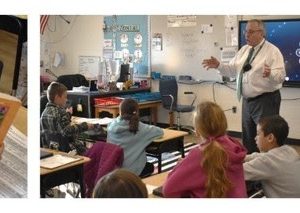Why Spelling Bees, Scrabble Champions, and Everyday Language Prove the Power of Words.
Why Spelling Bees, Scrabble Champions, and Everyday Language Prove the Power of Words
At the 33rd annual BizBee event in Fairbanks, Alaska, spelling champions showed that mastering words is never about shortcuts. The AAHkword Bees team, sponsored by Aging at Home Fairbanks and IBEW Local 1547, took home the top prize by spelling “theopneustic” — meaning “divinely inspired” — correctly during the final round. The event, hosted by the Literacy Council of Alaska, raises funds each year to support literacy programs in the community.
Events like BizBee remind us why projects like The Dictionary Project are so important. Providing students with their own dictionary builds the foundation they need for a lifetime of learning, curiosity, and communication. Just like spelling champions study thousands of words, young students begin their journey with the very first dictionary they receive.
Even Scrabble champions rely on mastering dictionaries. Nigel Richards, known as one of the best Scrabble players in history, memorized the entire French Scrabble dictionary — without speaking the language — to win world titles.
Language itself changes over time too. For example, the simple word “you” evolved from old English plural forms to what we now use every day. In some places, people have created words like “y’all” or “youse” to bring back the idea of speaking to a group. It shows how important it is to understand and protect language for future generations — just like The Dictionary Project does.
In today’s world of texting and quick messages, studies show that using too many shortcuts like “thx” or “k” can actually hurt relationships. People feel more connected when others take the time to use complete words.
Whether it’s a spelling bee, a Scrabble tournament, or just everyday conversations, words matter. Helping students build their vocabulary with a dictionary is one of the best gifts we can give — and a powerful investment in their future.




